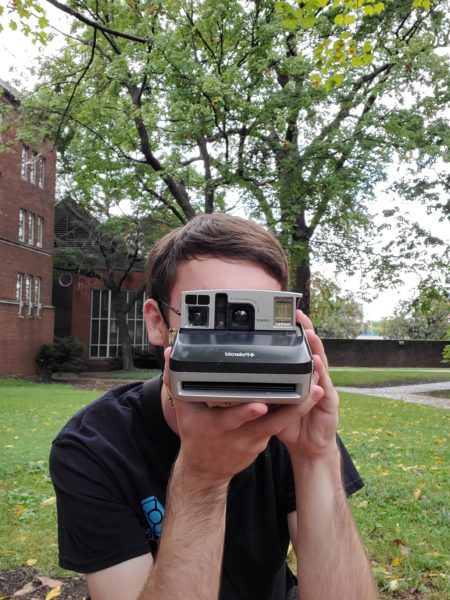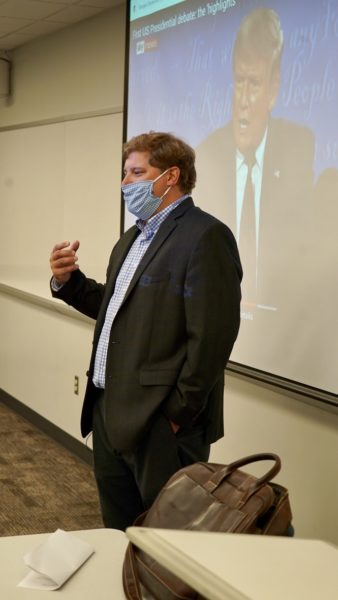When first-year student Kurt Urban came to Vanderbilt, he arrived with a retro Polaroid camera, hoping to capture campus sights from a new perspective.

But as the College of Arts and Science student became involved in an American Studies class amid a heated election season, he started seeing through what he considers a surprising new lens: one of dynamic and respectful political discourse.
Urban said he’s learning this philosophy of showing mutual respect even when you disagree in a course titled “Faith, Politics and Polarization” led by the Rev. Dr. Clay Stauffer, adjunct assistant professor of American studies.
Religion, politics and voting
The small seminar class explores the complex relationship between religion and partisan politics in the United States, analyzing how different beliefs and American cultural values make an impact on voting patterns.
Urban said what’s unique is “how” they’re learning and debating with civility, mutual respect and robust dialogue despite the foundational and ideological differences among those in the seminar.
“The class is what you’d imagine in an ideal world with democratic debates between different ideological standpoints,” said Urban, who is from Navarre, Florida. “It’s a lot of fun.”

“I don’t know why people in our culture feel threatened to hear a perspective that’s different from their own, but they do, and I don’t think that’s good,” said Stauffer, who is also the author of Preaching Politics and Spiritual Reflections on Faith, Values, and Culture. He is also the senior minister at Woodmont Christian Church in Nashville.
“We have to incorporate the study of moral foundations, civility and decency into the academic disciplines if we want to see these things change in the broader culture,” he added.
Stauffer has a set of class ground rules, which include completing all of the readings, having open and honest dialogue where students listen as much as they talk, and respecting the opinions and beliefs of others.
“We need to model in the classroom what we’re trying to do in greater society and understand that people are coming from very different backgrounds and moral foundations,” Stauffer said.
New environment
Like other students in the class, Urban acknowledges that the Vanderbilt environment is different from his hometown, where most people are like-minded.
“Coming from a very one-sided area to Vanderbilt, where people are from all over and can speak their minds and have discussions—it’s a very big difference, but one that I am very glad to have,” Urban said.
Stauffer said one of the goals of a college education should be for students to get to know people different from themselves and take time to hear other perspectives.
“Get to know folks who vote differently from you. Get to know people who are not of your same demographic. Build bridges and make relationships,” Stauffer said. “Human beings will always be tribal, but there’s absolutely a way for us to reach a tolerance and civility with people who see the world differently.”
Some of Kurt Urban’s favorite Polaroid snaps. “There’s sort of a magic to Polaroids,” he said. “There’s something special about holding the camera that you just don’t get whenever you text a picture to your friend.”







